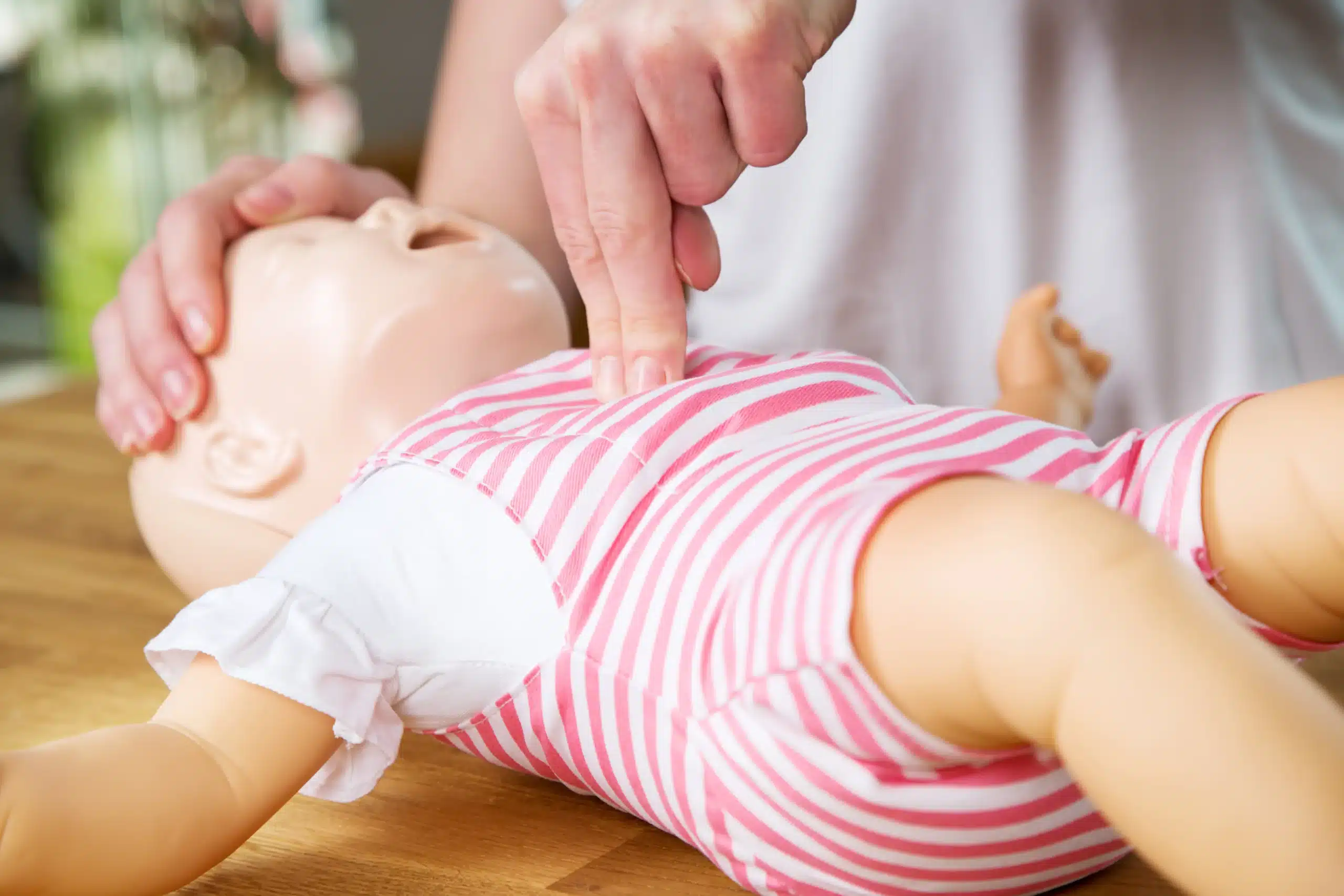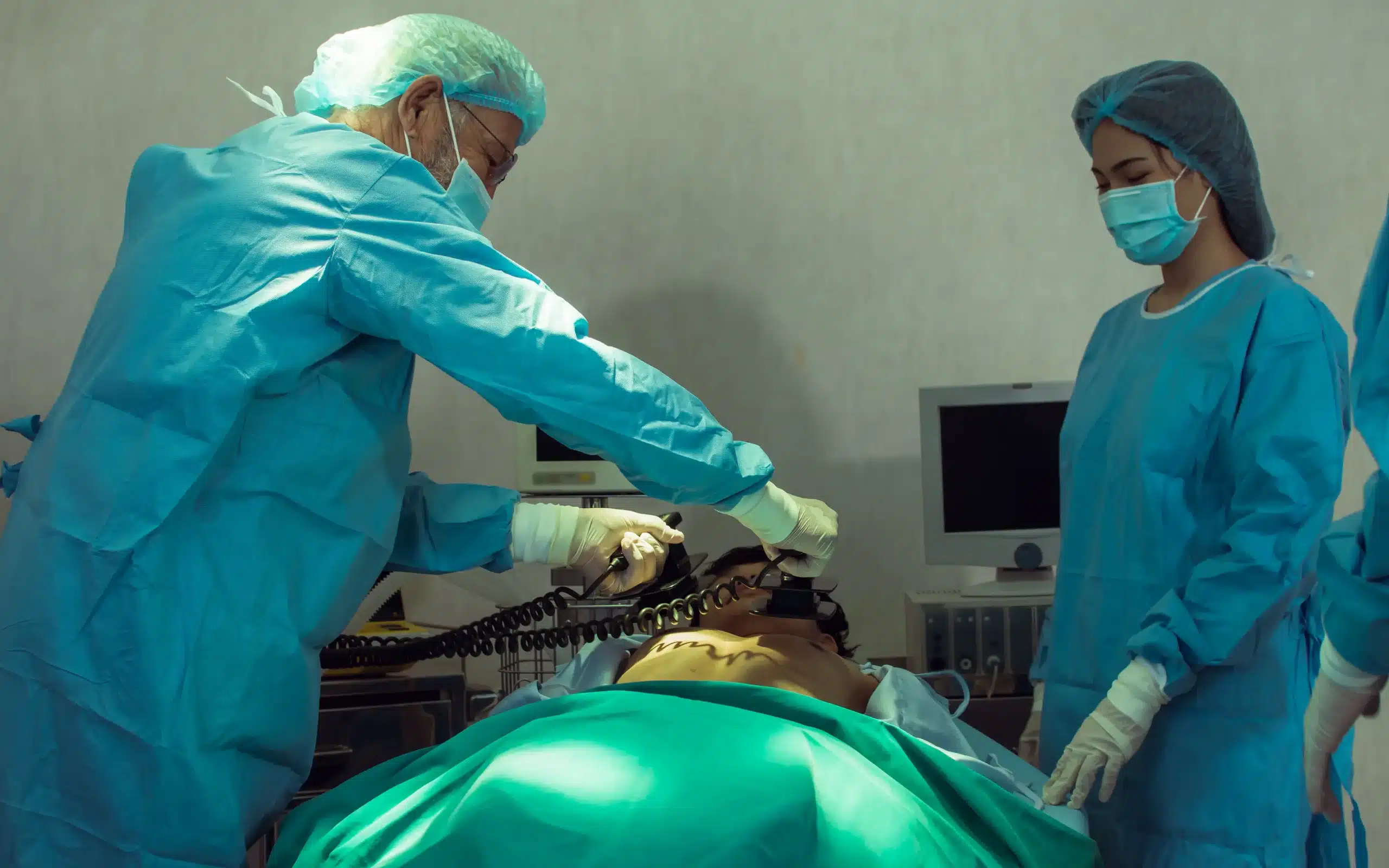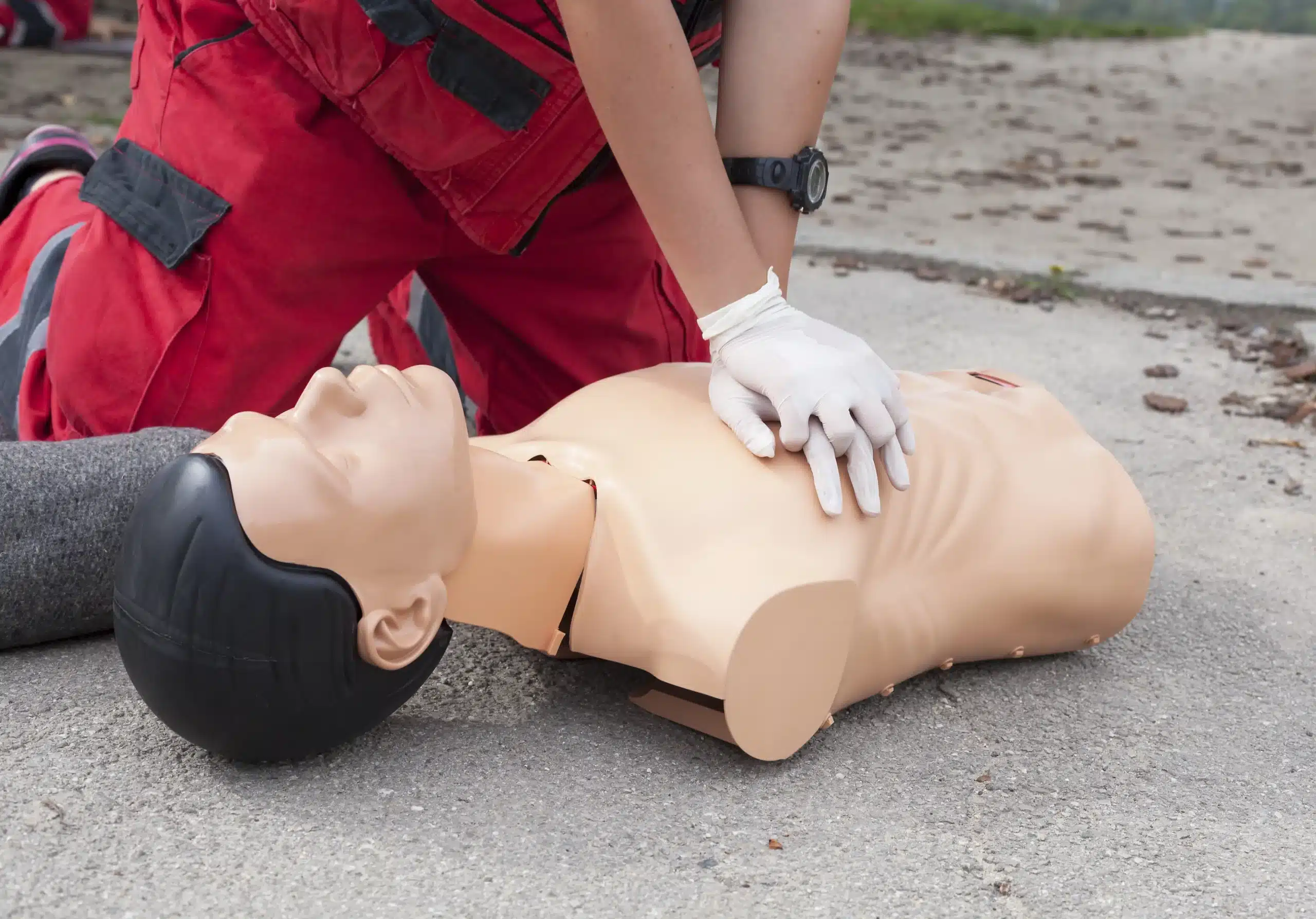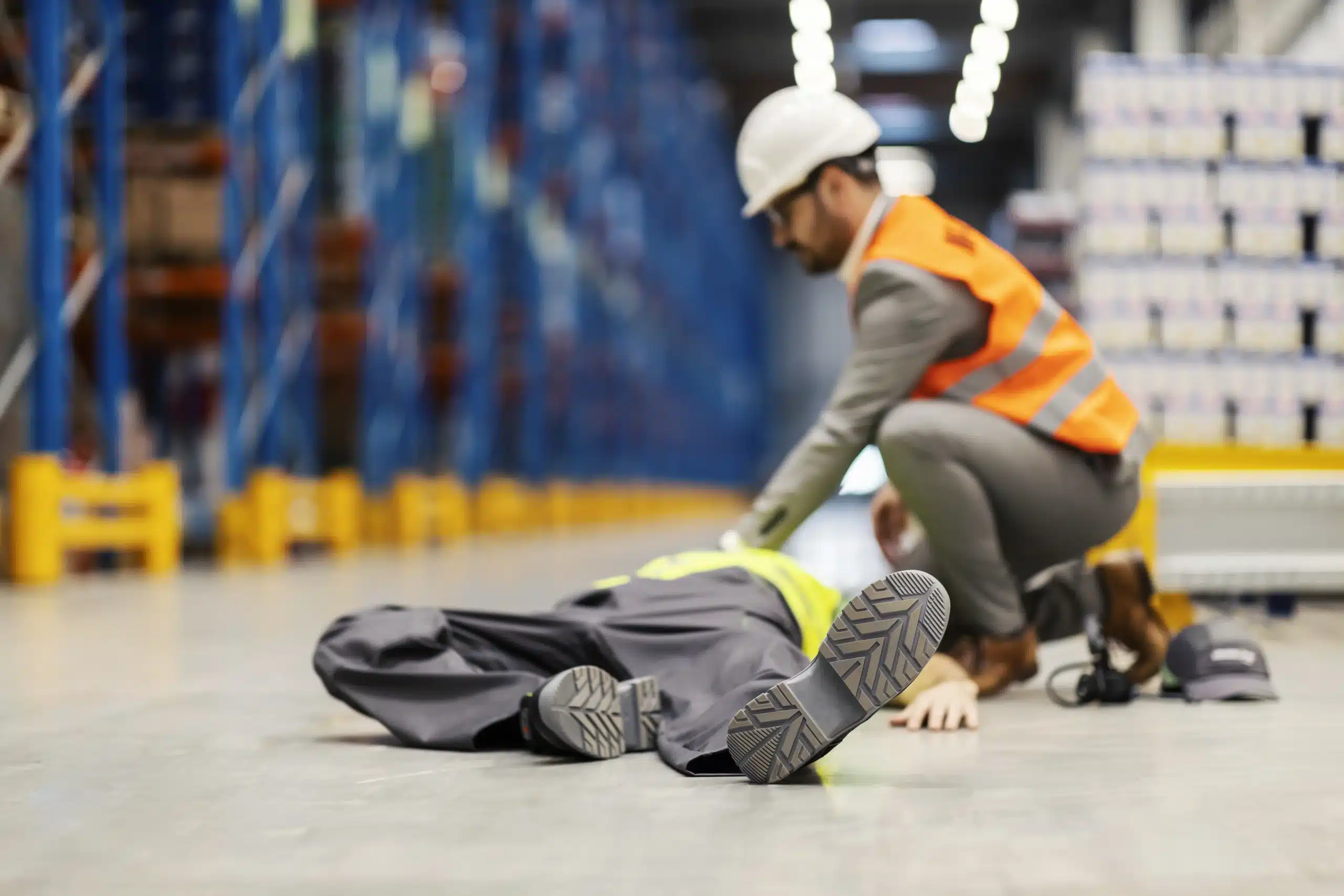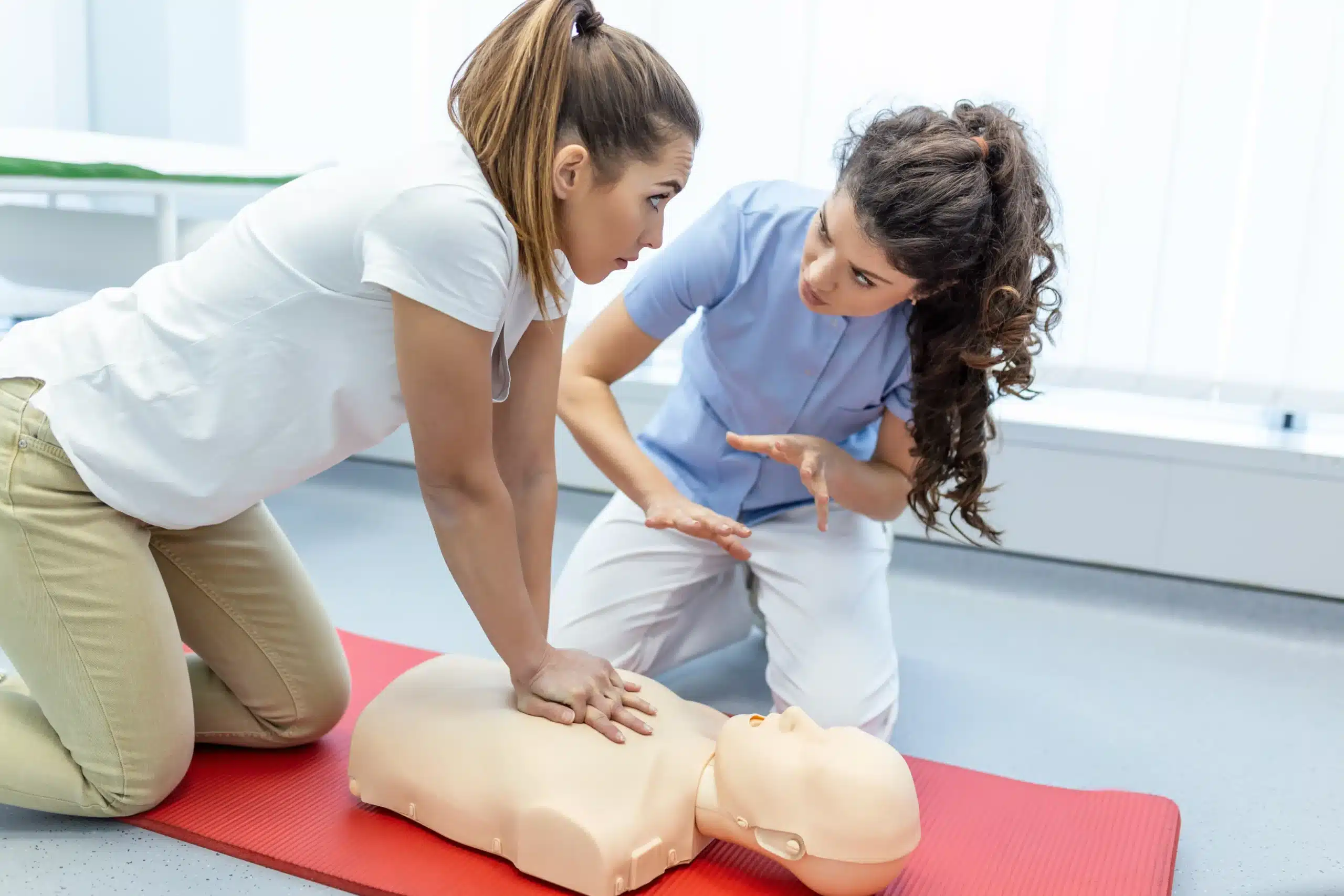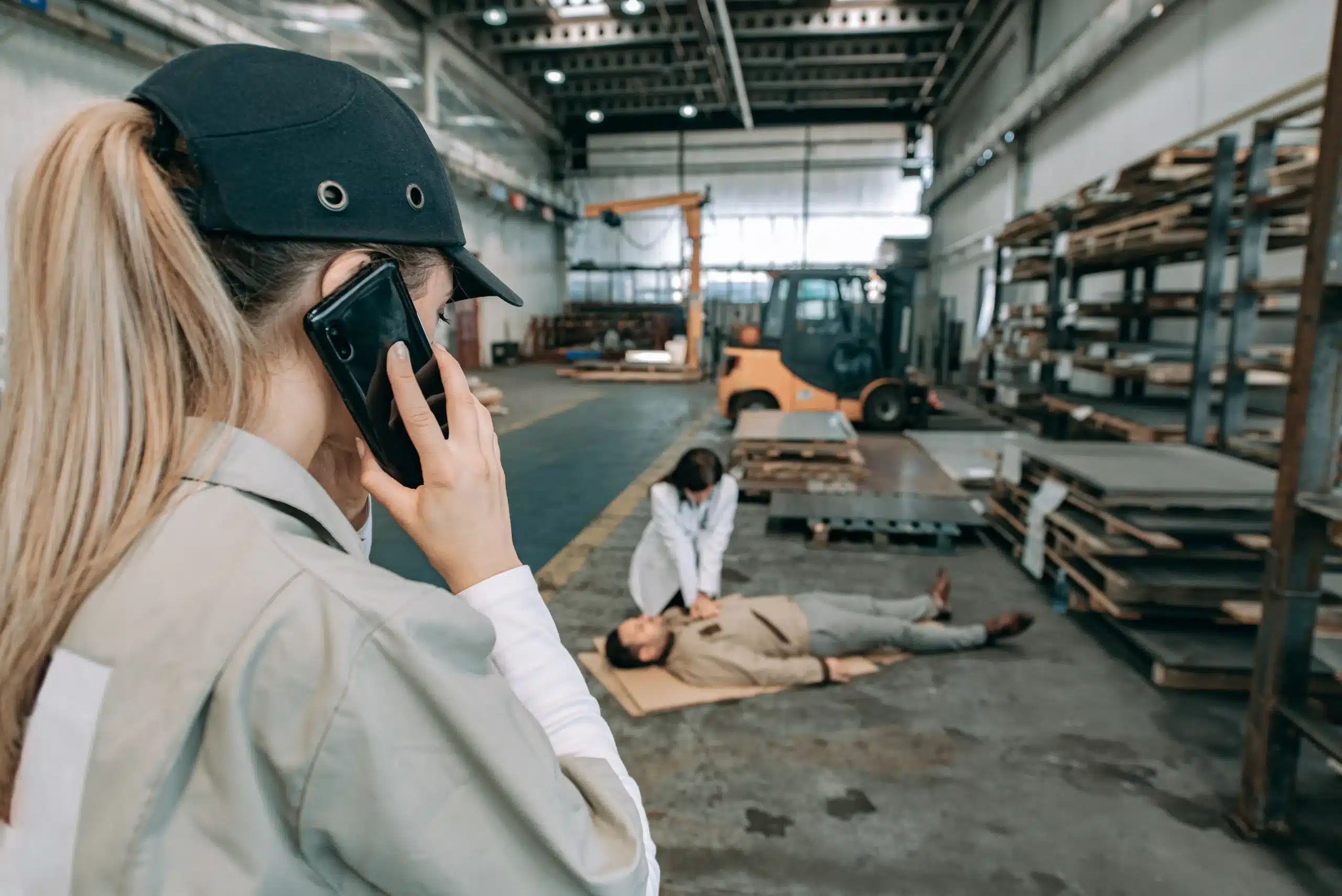Medical emergencies can happen anytime, anywhere. Would you know what to do? BLS certification empowers you to respond effectively in such situations. This comprehensive guide covers everything you need to know about BLS certification in San Jose, from understanding the core skills to finding the right training program. Whether you’re a healthcare professional, a concerned parent, or simply someone who wants to be prepared, this article will provide valuable insights into the importance of BLS and how it can make a real difference in your community. We’ll explore the various course options, discuss the costs and benefits, and guide you through the process of getting and maintaining your certification.
Key Takeaways
- BLS certification empowers you to act in emergencies: Learning CPR, AED use, and airway management techniques gives you the confidence to provide immediate assistance when it matters most. These skills are invaluable in various situations, from medical emergencies at home to supporting patients in healthcare settings.
- Finding a BLS course in San Jose that fits your lifestyle is simple: Explore options like in-person training at Safety Training Seminars, online courses through the American Red Cross, or blended learning programs that combine both. Consider factors like location, schedule, and course format to find the best fit.
- Staying certified keeps your skills sharp: BLS certification is typically valid for two years. Renewing your certification demonstrates your commitment to providing high-quality care and ensures you’re prepared to handle emergencies effectively. Look for convenient renewal courses to maintain your skills and knowledge.
What is BLS Certification & Why Do You Need It?
What is BLS?
BLS stands for Basic Life Support. It’s a critical certification, especially for healthcare providers and first responders like EMTs and paramedics. BLS covers core life-saving techniques, including CPR (Cardiopulmonary Resuscitation), using an AED (Automated External Defibrillator), and relieving choking. It also teaches you how to recognize and respond to respiratory and cardiac arrest. Essentially, BLS equips you with the skills to handle life-threatening emergencies. While it’s a must-have for healthcare professionals, anyone can benefit from having these skills. Learn more about our BLS certification course.
Why is BLS Important for Healthcare & Emergencies?
BLS is about more than just checking a box for your job—it’s about empowering yourself to potentially save a life. Medical emergencies can happen anytime, anywhere. Having BLS training means you can step in and provide immediate assistance while waiting for professional help to arrive. This quick action can significantly improve the outcome of a cardiac arrest or other emergency. For healthcare professionals, BLS provides the foundation for delivering high-quality patient care in critical situations. It allows you to respond confidently and effectively, improving patient safety and overall health outcomes. Find BLS courses in San Jose that fit your schedule.
Common BLS Myths
One of the biggest myths surrounding BLS is that it’s only for doctors and nurses. This couldn’t be further from the truth. Anyone can—and should—learn BLS. Teachers, coaches, parents, and even office workers can benefit from this training. Another misconception is that BLS certification is difficult to obtain. While the skills are important and require proper training, the courses are designed to be accessible and manageable for everyone. Don’t let these myths prevent you from gaining these invaluable life-saving skills.
Where to Get BLS Certified in San Jose
Finding the right BLS training center is an important first step. Here are a few options to explore in San Jose:
Safety Training Seminars
Safety Training Seminars offers a full range of American Heart Association certified courses, including BLS, ACLS, PALS, CPR, and First Aid. They also provide EMSA-approved training for childcare providers in California. You can find their BLS course schedule and register for a class on their website. A convenient location in Willow Glen makes training accessible for residents of San Jose, Santa Clara, and Sunnyvale. Check out their low price guarantee.
American Red Cross
The American Red Cross also offers BLS certification and renewal courses in San Jose. They have several course formats, including a blended learning option that combines online coursework with in-person skills sessions. This can be a good choice if you prefer a more flexible learning experience.
CPR Training Center
Another option for AHA-certified BLS training is the CPR Training Center in San Jose. Like the Red Cross, they offer both traditional classroom courses and blended learning formats. Explore their website to see which style fits your schedule and learning preferences.
American Heart Association Training Centers
Many other AHA Training Centers offer BLS certification in San Jose. For example, Adams Safety Training provides various AHA courses, including BLS. Searching online for “AHA Training Centers near me” can help you discover additional options in your area.
BLS Course Options & Details
Knowing your options is the first step. Let’s break down the different BLS course formats, what you’ll learn, and how those skills translate to real-world situations.
Course Formats & Duration
In-Person Training
In-person BLS training offers hands-on learning and direct interaction with instructors. These courses typically include demonstrations, practice scenarios, and immediate feedback. Standard in-person classes can be completed in as little as 4.5 hours, according to our guide to BLS training in San Jose. This format works well for people who learn best in a traditional classroom setting.
Online Courses
Online BLS courses provide flexibility for those with busy schedules. The American Red Cross offers online BLS training that allows you to learn at your own pace. You’ll move through modules, complete quizzes, and study the material on your own time. This format is ideal for those who prefer self-directed learning or have limited availability.
Blended Learning
Blended learning combines online learning with in-person skills sessions. This approach uses online modules for the knowledge portion and then schedules in-person sessions to practice essential skills. The Red Cross blended learning program is a good example of this format, offering a comprehensive learning experience.
Essential BLS Skills You’ll Learn
Regardless of the format you choose, any accredited BLS course will cover these core skills:
Adult, Child, and Infant CPR
You’ll learn how to perform CPR on adults, children, and infants. This includes recognizing the signs of cardiac arrest and delivering effective chest compressions. BLS certification courses also teach rescue breathing and how to integrate it with compressions. These skills equip you to respond to a range of emergencies.
How to Use an AED
Automated External Defibrillators (AEDs) can significantly increase the chances of survival during cardiac arrest. BLS training covers how to safely and effectively use an AED in various situations. You’ll gain the confidence to use this life-saving device. CPR Certification Plus highlights AED training as a key component of their BLS courses.
Responding to Choking
BLS courses teach you how to recognize and respond to choking emergencies in both conscious and unconscious victims. You’ll learn techniques for clearing obstructed airways in adults, children, and infants. Our BLS course guide emphasizes the importance of these life-saving skills. Quick action in these situations can be critical.
How You’ll Use BLS Skills in Real Life
BLS skills are invaluable in various real-life scenarios. From responding to emergencies at home or in public spaces to providing crucial support in healthcare settings, these skills empower you to act quickly and confidently. BLS courses often incorporate real-life emergency scenarios to make the training practical and applicable. You’ll learn how to assess a situation, make quick decisions, and provide effective care until professional help arrives. This preparedness can make a real difference in someone’s life.
BLS Certification: Costs & Benefits
Typical Course Costs
In San Jose, BLS certification courses typically cost between $70 and $150. Several factors influence the price, including the course format (in-person, online, or blended learning), the training provider, and included materials. Remember that a quality BLS course is an investment in your skills and ability to respond to emergencies. For a detailed breakdown of BLS course costs in San Jose, check out this helpful guide.
Group Discounts & Deals
If you’re training with a group, look for providers that offer group discounts. Many training centers, including Safety Training Seminars, offer reduced rates for group registrations. This makes high-quality training more accessible. Check with your chosen provider about their group discount policies.
Safety Training Seminars’ Low Price Guarantee
Safety Training Seminars offers a low price guarantee, ensuring you receive excellent training at a competitive price. This commitment to affordability makes it easier for individuals and groups in San Jose, Santa Clara, and Sunnyvale to access essential, life-saving skills.
The Long-Term Value of BLS
The value of BLS certification goes beyond the initial course cost. BLS training gives you the skills and confidence to respond effectively in medical emergencies. Mastering CPR, using an AED, and managing airways can make a real difference. Consider BLS training an investment in your community, giving you the tools to potentially save a life. Learn more about the impact of BLS training in this comprehensive guide.
Getting & Maintaining Your BLS Certification
Earning your BLS certification is a rewarding process. Let’s break down what to expect and how to keep your skills sharp.
How Courses Are Assessed
BLS courses are designed to be practical and hands-on. You’ll encounter realistic emergency scenarios, practicing CPR, using an AED, and relieving obstructed airways for adults, children, and infants. This approach helps build muscle memory and confidence for real-world situations. At Safety Training Seminars, our instructors guide you through each skill, providing feedback and support. Our BLS course page offers more details about our program.
Skills Evaluation
BLS equips you with the skills to potentially save a life. You’ll learn CPR for different age groups, proper AED use, and essential airway management techniques. These skills give you the confidence to respond effectively in medical emergencies, making a real difference in San Jose. Check out our BLS courses in San Jose to learn more.
How Long is Certification Valid?
BLS certifications are typically valid for two years. This timeframe ensures your skills and knowledge remain up-to-date with the latest American Heart Association guidelines. You can find more information on our FAQ page.
Renewing Your Certification
Staying current with your BLS certification is crucial for any healthcare professional or first responder. Here’s what you need to know about recertification:
How to Recertify
Renewal courses are readily available, offering a streamlined way to refresh your skills and maintain your certification. Safety Training Seminars offers convenient BLS renewal courses in San Jose, making it easy to stay certified.
Why Stay Current?
Maintaining your BLS certification demonstrates your commitment to providing high-quality care. The demand for certified professionals is high, especially for nurses. Staying current keeps you competitive and ensures you’re prepared to handle emergencies effectively. For healthcare providers looking to stay updated, our RQI program is a valuable resource.
Continuing Education
Beyond BLS, consider expanding your skillset with advanced certifications like ACLS (Advanced Cardiovascular Life Support) or PALS (Pediatric Advanced Life Support). These certifications build upon your BLS foundation, providing specialized training for complex medical emergencies. You can explore additional safety training options, including EMSA-approved courses for childcare providers in California.
Find the Right BLS Program in San Jose
Finding the right BLS program in San Jose means considering a few key factors to ensure it aligns with your needs and learning style. Let’s break down what you should look for and how to choose the best program.
What to Look For
BLS certification courses in San Jose come with varying price tags, often depending on the provider and the course format. Do some comparison shopping to understand the price range. Beyond cost, consider the program’s reputation, instructor experience, and the overall learning environment. A positive and supportive atmosphere can significantly impact how well you learn the material. Look for clear, concise information on course content, materials, and certification procedures. Our low price guarantee ensures you’re getting the best value for your investment in BLS training.
Choose the Best Program for You
Choosing a BLS course that fits your needs is crucial. Select a provider with certified instructors, hands-on training, and scheduling options that accommodate your schedule. Think about whether you learn best in a traditional classroom or if a blended learning approach with online components would be more effective. If you’re looking for the fastest route to certification, in-person BLS training can be completed in as little as 4.5 hours. This condensed format lets you quickly gain the knowledge and skills you need to respond to emergencies.
Addressing Common Concerns
It’s natural to have questions when choosing a BLS program. Here are some common concerns and how to address them:
Course Flexibility
Balancing work, family, and other commitments can make finding time for a course difficult. Many providers offer flexible options. The Red Cross, for instance, offers various course formats, including standard in-person classes and a blended online/in-person “Simulation Learning” option. This allows you to finish some coursework online at your own pace and then attend an in-person session for hands-on skills practice. Our BLS courses in San Jose (Willow Glen) are designed with flexibility in mind.
Certification Recognition
Ensure the certification you earn is widely recognized. Look for programs offering American Heart Association certification, recognized worldwide and valid for two years. This guarantees your certification will be accepted, no matter where you work or volunteer. Learn more about our RQI program for healthcare professionals seeking efficient recertification.
Instructor Qualifications
The quality of instruction significantly affects your learning. Instructors should be experienced, certified professionals who can effectively teach BLS skills and answer your questions. Look for programs emphasizing real-life scenarios and using a curriculum based on the latest research and best practices. This practical approach, combined with expert instruction, will give you the confidence to use your skills in real-world situations. Our instructors are highly qualified and dedicated to providing excellent training. We also offer specialized courses like EMSA Health, Safety, and Lead Poisoning for childcare providers in California.
Get Ready for Your BLS Certification
Getting ready for your BLS certification involves more than just showing up for class. A little prep work goes a long way! Here’s how to get ready:
Study Resources & Materials
The American Red Cross offers a blended learning BLS course that combines online learning with in-person skills sessions. Take advantage of online resources to familiarize yourself with the material before your hands-on training. Many programs, including those offered by Safety Training Seminars, provide students with manuals and study guides.
Practice Tests & Videos
You can find practice tests and videos online to help you prepare for the BLS certification exam. These resources allow you to test your knowledge and get comfortable with the types of questions you’ll encounter. Remember, you’ll need to score at least 84% on the multiple-choice BLS exam, which is open-book, and demonstrate your skills in person.
Tips for Success
BLS classes cover a range of life-saving techniques, including CPR for adults, children, and infants, AED operation, and how to clear an obstructed airway. Focus on understanding the reasoning behind each step. This will not only help you pass the exam but also build your confidence in real-life emergencies. BLS courses also emphasize critical thinking and problem-solving, so be prepared to apply your knowledge in different scenarios.
BLS Scenarios in San Jose
Your BLS training will likely include realistic emergency scenarios. These simulations give you a chance to practice your skills under pressure and learn how to adapt to different situations. Hands-on practice with real-life scenarios is key to mastering the techniques and feeling prepared to respond effectively in an emergency.
Related Articles
- BLS Training in San Jose: Your Ultimate Guide – San Jose CPR Classes
- BLS Certification in Santa Clara: A Guide for Healthcare Providers – San Jose CPR Classes
- CPR Certification San Jose: Your Complete Guide – San Jose CPR Classes
- 12 Common CPR Myths Debunked – San Jose CPR Classes
- BLS Courses in San Jose: Your Complete Guide – San Jose CPR Classes
Frequently Asked Questions
Is BLS certification only for healthcare professionals? Not at all! While it’s definitely essential for healthcare providers and first responders, anyone can benefit from BLS training. From teachers and coaches to parents and office workers, having these skills can make a real difference in any emergency.
What if I’m not comfortable performing CPR on strangers? It’s understandable to feel hesitant. However, BLS training focuses on building confidence through practice and realistic scenarios. You’ll learn how to assess a situation, make informed decisions, and provide appropriate care until professional help arrives. Remember, any assistance is better than none in a life-threatening situation.
How often do I need to renew my BLS certification? BLS certifications are typically valid for two years. Renewing your certification keeps your skills fresh and ensures you’re up-to-date with the latest guidelines from the American Heart Association.
What’s the difference between online, in-person, and blended learning BLS courses? In-person classes offer hands-on learning and direct interaction with instructors. Online courses provide more flexibility, allowing you to learn at your own pace. Blended learning combines the best of both worlds, offering online coursework supplemented by in-person skills sessions. Choose the format that best suits your learning style and schedule.
How can I find a reputable BLS training provider in San Jose? Look for providers offering American Heart Association certified courses. Check for things like instructor qualifications, course content, and available schedules. Reading reviews and comparing prices can also help you make an informed decision. Don’t hesitate to contact different providers directly and ask questions to find the best fit for you.
